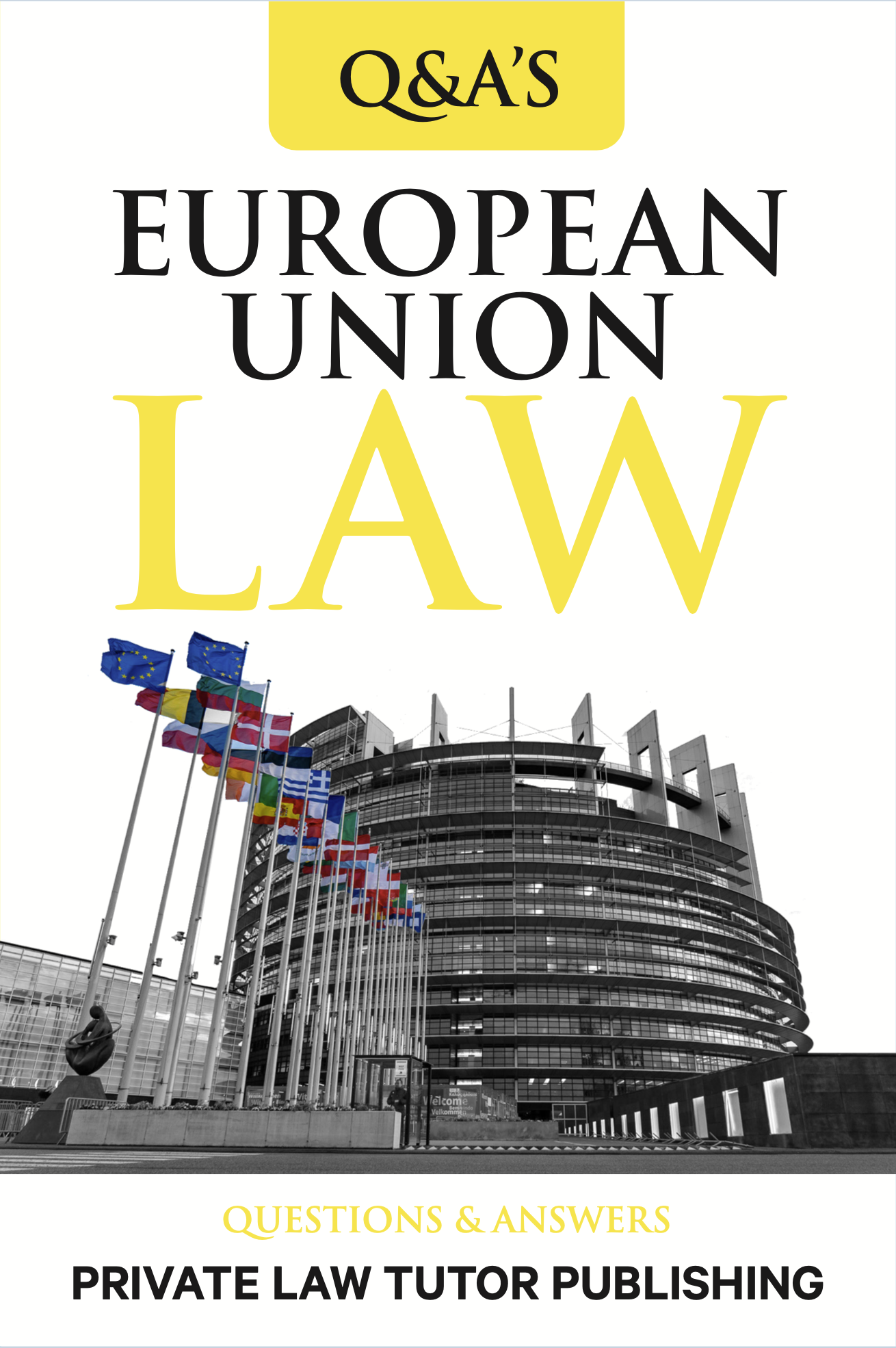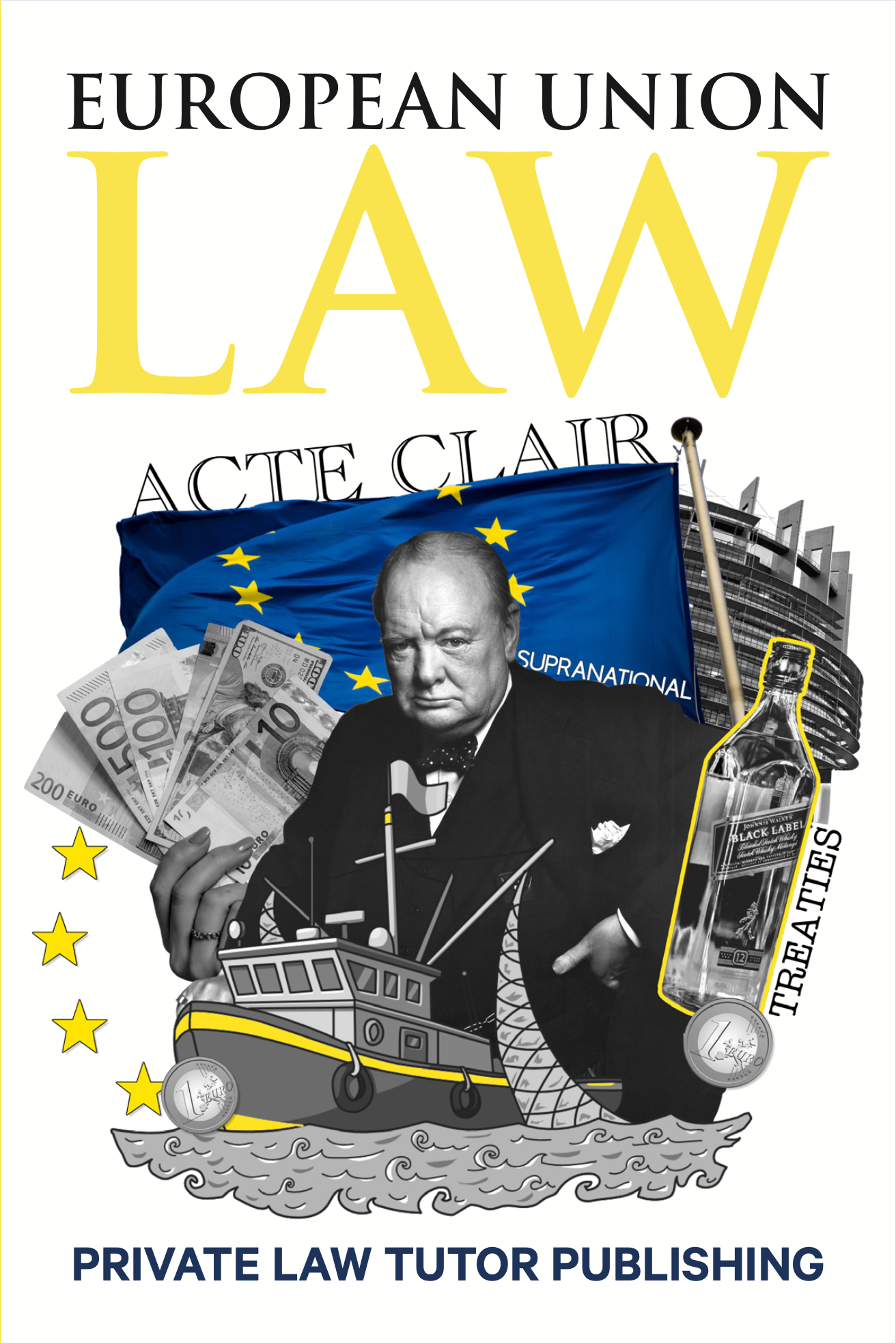 Image 1 of 1
Image 1 of 1


Direct Effect, Indirect Effect and State Liability Q&A
This set of EU law notes looks at the difference between direct applicability and direct effect. Four problem questions on Direct Effect Indirect Effect and State Liability are looked at to show how the principles of direct effect, indirect effect, and state liability and relate to each other and how an individual may enforce rights under EU law in their national courts through the application of these principles.
Problem Question One
Assume the EU law has passed the following two laws, a directive and a regulation, in the area of employment law.
Directive 2009/1 passed in July 2008. Article 2 of this Directive states: ‘An employee shall be entitled to five days holiday leave on attainment of long service employment. Long service is employment with the same employer for 20 years’.
Regulation 3/2012 Article 4 states ‘An employer may deduct proportionate expenses, not exceeding half of one month’s salary, from an employee’s salary, where the latter has caused loss to the employer intentionally or through carelessness or recklessness’.
The directive states that Member States have three years to transpose it onto national law. The regulation itself does not state when it is in force. There is no UK providing rights matching those in the directive or the regulation.
Ahmed and Bola both work as Administrators. Both started working with their respective employers in 1982 and have stayed employed with their employers all this time. Both have had their requests for long service leave refused by their respective line managers. Ahmed works for Redchester County Court. Bola works for Macphere LLP a firm of solicitors.
Bola’s employer has informed her that it will deduct from her wages a sum of money to pay towards damage caused by her to a work photocopier. She has admitted that she damaged it when she kicked it in frustration when paper became stuck.
In relation to this scenario explain for each party, Ahmed then Bola, whether any of these EU rights or obligations could be enforced in the UK:
Under the Van Gend en Loos principle
And, if you conclude that the above principle does not apply in a particular case, explain and advise if (ii) any other relevant EU law could lead to a remedy in the UK courts
Problem Question Two
According to a new European Directive (fictitious), Member States should require companies polluting the environment to have a complaints system whereby individuals can obtain reparation in the form of damages they sustained directly from polluters. Poland has failed to implement the Directive before the implementation deadline. The Polish Minister of the Environment is very vocal in the national and international press that the Directive puts many companies in danger of bankruptcy. Jan lives in a small coal mining town in the North of Poland and, for the past year, was not able to consume water from his well as it had been contaminated with products used in mining. Jan complained to the mine, who replied that it is not for them to compensate him for this problem. Jan is thinking of taking the mine to court and is wondering whether the European Directive might be of any help for his case.
Advise Jan.
Problem Question three
In 2009 the EU passed a directive requiring member states to set into national law the right to compensation from a train operator whose trains were delayed by more than 1 hour. The deadline for transportation of the directive was the end of 2012
In 2010 the EU passed a Regulation giving passengers of public transport the right to a refund of the price of a ticket if there is no available seat for the journey for which the ticket was bought. Currently UK law does not provide a right to a refund in this situation.
In 2011 the EU passed a directive providing public transport operators the right to refuse entry on to vehicles, even if the person is in possession of a valid ticket, in situations where the would-be passenger is violent, drunk, or visibly ill.
Raj’s train was delayed by 2 hours and the train operator, Midland Rail Line, MLR, has refused to pay him compensation. Steven travelled on a packed MLR train from London to Birmingham. There was no seat for him, and he stood the whole way. MLR, has refused to refund his ticket as Steven was able to board the train and reached his destination. MLR refused Sandra entry onto one of its trains as she was visibly drunk from drinking too much alcohol.
Advise MLR on the enforceability in the UK of any rights and obligations it has under these EU laws.
Problem Question Four
Fictitious Directive on shops’ opening times requires that shops should close at least one day a week throughout Europe. Spain has not implemented the directive by the deadline and has no intention of doing so soon as it considers the directive “yet another piece of abusive EU law”. Carlos manages a few grocery stores in Madrid and always closes for a day during the weekend. Yet, larger supermarkets never close, and Carlos has lost important business as a result. He has evidence of such loss of business provided by a study he commissioned with an important consulting company. Carlos considers suing several of those large supermarkets and asking for compensation. He comes to you to find out whether he could use the Directive on shops’ opening times to help his case.
How would your answer differ if the Spanish Constitution i) blocked a preliminary reference to the EU and ii) provided how compensation for loss of harm caused by public authorities could be obtained and the test was less stringent than the test for State Liability.
Advise Carlos.
This set of EU law notes looks at the difference between direct applicability and direct effect. Four problem questions on Direct Effect Indirect Effect and State Liability are looked at to show how the principles of direct effect, indirect effect, and state liability and relate to each other and how an individual may enforce rights under EU law in their national courts through the application of these principles.
Problem Question One
Assume the EU law has passed the following two laws, a directive and a regulation, in the area of employment law.
Directive 2009/1 passed in July 2008. Article 2 of this Directive states: ‘An employee shall be entitled to five days holiday leave on attainment of long service employment. Long service is employment with the same employer for 20 years’.
Regulation 3/2012 Article 4 states ‘An employer may deduct proportionate expenses, not exceeding half of one month’s salary, from an employee’s salary, where the latter has caused loss to the employer intentionally or through carelessness or recklessness’.
The directive states that Member States have three years to transpose it onto national law. The regulation itself does not state when it is in force. There is no UK providing rights matching those in the directive or the regulation.
Ahmed and Bola both work as Administrators. Both started working with their respective employers in 1982 and have stayed employed with their employers all this time. Both have had their requests for long service leave refused by their respective line managers. Ahmed works for Redchester County Court. Bola works for Macphere LLP a firm of solicitors.
Bola’s employer has informed her that it will deduct from her wages a sum of money to pay towards damage caused by her to a work photocopier. She has admitted that she damaged it when she kicked it in frustration when paper became stuck.
In relation to this scenario explain for each party, Ahmed then Bola, whether any of these EU rights or obligations could be enforced in the UK:
Under the Van Gend en Loos principle
And, if you conclude that the above principle does not apply in a particular case, explain and advise if (ii) any other relevant EU law could lead to a remedy in the UK courts
Problem Question Two
According to a new European Directive (fictitious), Member States should require companies polluting the environment to have a complaints system whereby individuals can obtain reparation in the form of damages they sustained directly from polluters. Poland has failed to implement the Directive before the implementation deadline. The Polish Minister of the Environment is very vocal in the national and international press that the Directive puts many companies in danger of bankruptcy. Jan lives in a small coal mining town in the North of Poland and, for the past year, was not able to consume water from his well as it had been contaminated with products used in mining. Jan complained to the mine, who replied that it is not for them to compensate him for this problem. Jan is thinking of taking the mine to court and is wondering whether the European Directive might be of any help for his case.
Advise Jan.
Problem Question three
In 2009 the EU passed a directive requiring member states to set into national law the right to compensation from a train operator whose trains were delayed by more than 1 hour. The deadline for transportation of the directive was the end of 2012
In 2010 the EU passed a Regulation giving passengers of public transport the right to a refund of the price of a ticket if there is no available seat for the journey for which the ticket was bought. Currently UK law does not provide a right to a refund in this situation.
In 2011 the EU passed a directive providing public transport operators the right to refuse entry on to vehicles, even if the person is in possession of a valid ticket, in situations where the would-be passenger is violent, drunk, or visibly ill.
Raj’s train was delayed by 2 hours and the train operator, Midland Rail Line, MLR, has refused to pay him compensation. Steven travelled on a packed MLR train from London to Birmingham. There was no seat for him, and he stood the whole way. MLR, has refused to refund his ticket as Steven was able to board the train and reached his destination. MLR refused Sandra entry onto one of its trains as she was visibly drunk from drinking too much alcohol.
Advise MLR on the enforceability in the UK of any rights and obligations it has under these EU laws.
Problem Question Four
Fictitious Directive on shops’ opening times requires that shops should close at least one day a week throughout Europe. Spain has not implemented the directive by the deadline and has no intention of doing so soon as it considers the directive “yet another piece of abusive EU law”. Carlos manages a few grocery stores in Madrid and always closes for a day during the weekend. Yet, larger supermarkets never close, and Carlos has lost important business as a result. He has evidence of such loss of business provided by a study he commissioned with an important consulting company. Carlos considers suing several of those large supermarkets and asking for compensation. He comes to you to find out whether he could use the Directive on shops’ opening times to help his case.
How would your answer differ if the Spanish Constitution i) blocked a preliminary reference to the EU and ii) provided how compensation for loss of harm caused by public authorities could be obtained and the test was less stringent than the test for State Liability.
Advise Carlos.


